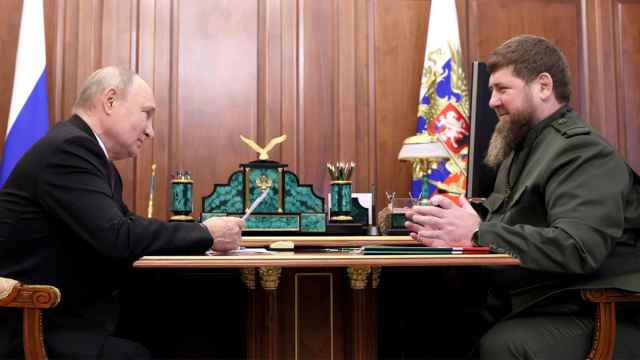A yearlong job search in Russia has yet to yield results for Daniel Campbell, a resident of Northern Ireland looking for new opportunities outside his home country.
Like many of their European peers, Britain and Ireland are struggling economically.
"Employment in Ireland is very competitive. Northern Ireland has the highest unemployment rate within the United Kingdom," said Campbell, a 23-year-old human resources specialist. "Most of my friends have immigrated or plan to immigrate to Australia, America, Canada or elsewhere," he said.
Despite its exorbitant prices and eternal traffic jams, Moscow has become a magnet for foreigners seeking jobs, as unemployment in Europe is hitting record highs amid the debt crisis.
"We've been particularly busy bringing foreigners over the last six months," said Gethin Jones, director of Troika Relocations, which helps foreigners move to Russia and settle in.
Both Jones and Moscow-based headhunters said the stable growth of Russia's economy has encouraged foreign specialists to look for new opportunities here.
The number of new resumes submitted by foreigners seeking employment in Russia increased 11 percent last year. That is a rebound from a 60 percent decline in 2010, according to online recruiting company HeadHunter.
This is not the first time strained economic conditions in their home countries have led foreigners to turn to Russia in search of employment.
The number of new resumes posted by foreigners on the hh.ru website run by HeadHunter rose 116 percent and 22 percent in 2008 and 2009, respectively, the company said.
But unlike in the crisis of 2008-2009, when Russia was hit as severely as the rest of the world, the local labor market now provides more opportunities for expats.
"It's a different situation: Europe is in recession, and the Russian economy looks more stable against this background," said Yekaterina Gorokhova, chief executive of Kelly Services CIS. "The labor market in Russia has resources today to attract foreign managers, which results in an increasing number of offers from foreign specialists."
During the previous crisis, foreigners' chances of being employed in Russia were close to zero because companies were cutting costs and had no money to cover relocation expenses, said Yury Dorfman, head of HR practice at Cornerstone, which focuses on executive searches.
Recruiters said that expats applying for a job in Russia today can count on generous social benefits, with companies covering housing and transportation costs and providing visa support, while salaries are almost equal to those received by local specialists.
Dorfman said that along with new resumes, his company now gets requests from former clients willing to come back after leaving the country between 2008 and 2009.
"I believe this is because of the strained economic situation in Europe. ... So non-demanded specialists are trying to find jobs outside the region," he said.
Russia's official unemployment rate reached 6.6 percent in 2011, down from 7.5 percent a year earlier, according to the State Statistics Service.
Unemployment in the 17-country eurozone stood at 10.4 percent in December 2011, according to the European Union's statistics service, Eurostat.
Having posted 4.3 percent growth in gross domestic product last year, Russia is becoming an attractive market for multinational corporations to develop business and bring employees, Jones said.
"That's not a huge growth, but compared to what's going on in Europe and North America, it's very significant," he said.
The eurozone saw modest economic growth of 1.5 percent in 2011, while the U.S. economy expanded by 1.7 percent.
Campbell, who plans to move to Moscow along with his Russian girlfriend, said he hopes that the pace of Russia's economic development will afford him "opportunities within an English-speaking organization based in Moscow or elsewhere" in the country.
Most foreigners are attracted to Russia by career promotion opportunities and a chance to be employed in positions that would require much more time to attain in their home countries.
"There's every chance to build a good career quickly in Russia and come back to the home country in a different status," Dorfman said. "For example, a Western financial controller could easily apply for a chief financial officer position in Russia."
Among the industries in which expats are traditionally in high demand are banking and finance, oil and gas, financial management and consulting, he said, adding that local companies usually invite foreigners to oversee new projects, which require skills and expertise that local managers often don't have.
An expat is also better received by the international business community and could raise financing for a company faster than a local colleague, he said.
But getting a job in Russia might be a challenge because expats are facing increasing competition from local specialists, headhunters said. Foreign specialists applying for a job will have to prove their skills are superior, however.
"Russia has raised a generation of qualified and responsible local managers," Gorokhova said.
This results in decreasing demand for foreign senior executives, although more companies are considering hiring mid-level managers from abroad, said Gleb Lebedev, head of research at HeadHunter.
The new trend leaves hope for Campbell, who said after months of fruitless searching that an English-language teaching position is the most realistic option for him.






